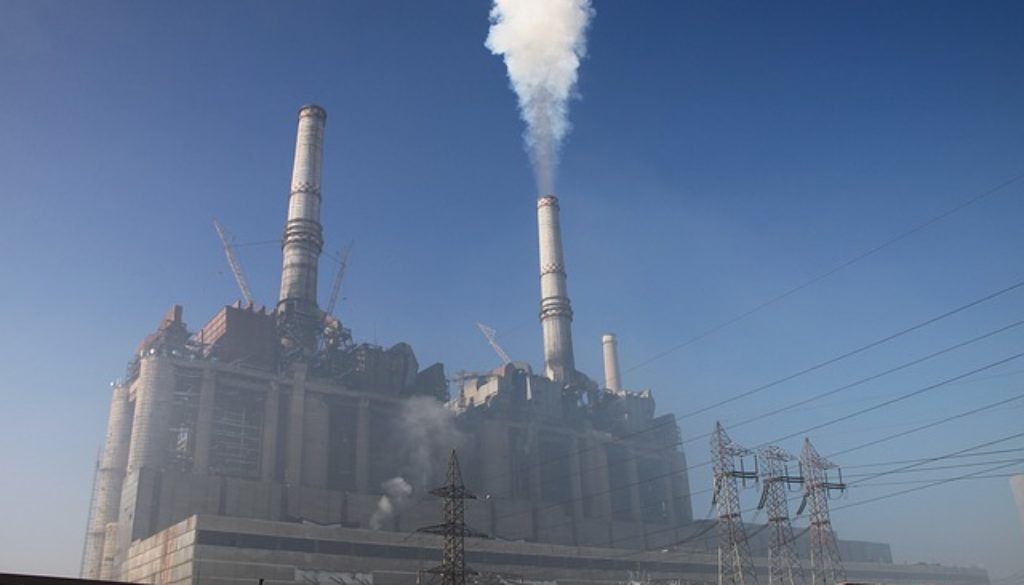Earth to Pruitt: Americans Say Keep Clean Power Plan—Again
By Jake Thompson, Natural Resources Defense Council
One thing that echoed through the halls of Capitol Hill this week: Scott Pruitt is so far out of touch with the public he’s supposed to protect and the mission of the agency he supposedly serves.
Nowhere was that clearer than his remorseless defense of his efforts to dismantle the Clean Power Plan, our country’s best chance to curb climate change.
It’s worth noting that at the very moment the Environmental Protection Agency chief sat on the hot seat before two House committees—facing bipartisan hazing over ethics lapses and wasteful spending on luxury travel, sound proof phone booth and 24-7 security detail— Americans were sending their final wave of comments into Washington supporting the climate action strategy to clean up dirty power plants.
On Thursday, the public comment period closed on Pruitt’s formal proposal to repeal the Clean Power Plan. Let’s cut to the chase: Americans overwhelmingly think repeal stinks.
They spoke out from all walks of life, from a broad segment of business and industry, and from mayors’ offices to statehouses to Capitol Hill.
They spoke with one voice, expressing the views that scrapping the Clean Power Plan—with no alternative—means abandoning responsible action right as the harmful impacts of climate change are intensifying. It would abdicate our leadership on the world stage to address this global threat. And it would alert our children and future generations who could literally inherit a whirlwind of chaos that, well, this generation just doesn’t care.
Their voices were heard in the more than 600,000 comments filed with the EPA opposing repeal. The Natural Resources Defense Council and the NRDC Action Fund helped generate more than 208,000 of those comments calling for keeping, not scrapping, the plan that would lessen climate change and speed the transition to clean energy.
“Climate change is already having major impacts across the country: recent wildfires have raged across the western states, hurricanes have pummeled the east and gulf coasts, and extreme heat has baked the south,” NRDC says in lengthy comments found here. “These and other harmful effects of a changing climate are growing increasingly severe. We need to act now…”
Just before the deadline closed, Google joined Apple and a number of other businesses in making public statements in support, saying that curbing global warming “is an urgent global priority that requires robust federal policy engagement and strong action from the business community.”
And senators spoke out, too. Eight Democratic senators signed onto a letter led by Senate Environment and Public Works Committee ranking member Tom Carper opposing repeal. The senators write that tossing it aside “ignores scientific evidence on the risks of climate change and puts generations of Americans at grave health and economic risk.”
Finally, 16 attorneys general and municipalities submitted a comment letter to EPA documenting due process violations and ethical issues tied to Pruitt’s involvement—before he was at EPA, Pruitt as Oklahoma attorney general sued the agency to block the Clean Power Plan. “His involvement has irreparably tainted the current administrative process, and as a result, EPA must withdraw the proposed CPP repeal.”
We’ve seen this lopsided movie before.
When the Obama administration launched its climate action plan in 2013—and subsequently proposed the Clean Power Plan and another set of pollution limits for future power plants— Americans spoke out resoundingly in support.
During the comment period, EPA held four two-day public hearings in Washington, D.C., Pittsburgh, Denver and Atlanta, where hundreds came out for the Clean Power Plan.
Overall, more than 8 million comments flooded into the EPA supporting the Clean Power Plan and climate action—the most ever received by the agency.
The support came from a broad and diverse range of voices and from all across the country. Public health officials, Latinos, African Americans, faith leaders, consumer groups, business leaders, utilities, renewable power leaders, mayors, governors and more joined the millions of individual Americans backing action on climate change.
In 2016 EPA finalized the climate plan. It aims to reduce carbon pollution 32 percent by 2030 from 2005 levels by setting emissions limits for each state, and enabling states top meet them by various means, and would deliver health and climate benefits of up to $54 billion.
But the plan has been tied up in courts—challenged by the likes of Scott Pruitt, who was then Oklahoma attorney general, and polluter allies.
When Trump took office, he and Pruitt, now heading EPA, took aim at unilaterally disarming the Clean Power Plan with an executive order calling for its review. Pruitt followed up last fall with a formal proposal to repeal the plan.
Initially, Pruitt’s EPA held a lone formal public hearing late last fall in Charleston, West Virginia. But if Pruitt thought holding the event in the heart of coal country would skew testimony in his favor, he was sorely mistaken. Of 250 people who testified, 81 percent opposed CPP repeal.
In reaction to EPA’s pecuniary approach, officials in New York, Delaware and Maryland scheduled “People’s Hearings” early this year. Hundreds more Americans spoke at these hearings, voicing their opposition to repeal, including experts from NRDC.
Under public pressure, Pruitt’s EPA then scheduled listening sessions this year in Kansas City, San Francisco, Gillette, Wyo. Same story. The majority who testified urged EPA to keep the Clean Power Plan in place. In advance of one hearing, 244 mayors from 48 states and territories representing 52 million residents released a joint letter opposing repeal saying it, “would put our citizens at risk and harm our efforts to address the urgent threat of climate change.”
Will Pruitt ever face this truth, that Americans want climate action and they want it now? Who knows? But he’s bound to keep hearing from them, because they care about the fate of the Earth, and they do worry about the world our children and future generations inherit.

